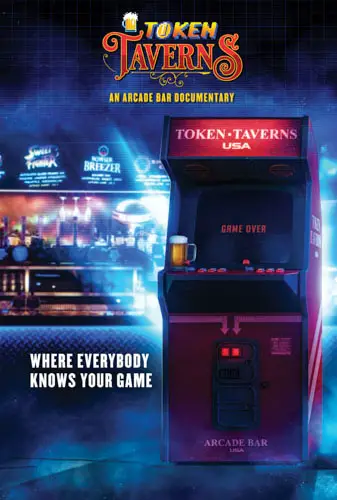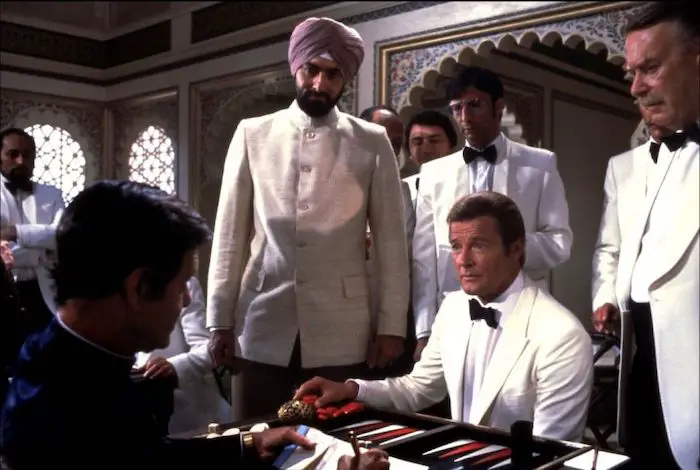
Director Bob Rose’s Token Taverns is an engaging documentary look at the current surging wave of arcade bars. The golden age of cabinet video games and pinball peaked in the 80s, but now these games are in vogue again and bigger than ever in the arcade bar scene. The gamers are of all (legal drinking) ages. While there are definitely aging gamers nostalgic for their favorite cabinet and pinball games, the gaming bars are also bringing in a new generation of players in a big way.
The advent and rise of arcade bars began some years ago, and the trend was expanding quickly, but as with all social gathering places, the industry took a hit because of forced closures during the COVID-19 pandemic. As a testament to the staying power of social gaming (and alcohol), this business space has exploded after the pandemic. It is once again growing, with new bars opening everywhere and existing arcade bars sustaining healthy revenue streams.
Token Taverns features interviews with various bar owners and well-known names in the arcade gaming world but focuses on three arcade bars and their owners over two years as they adapt and weather (or not) the vicissitudes of the global pandemic. Appearances of famous faces include Billy Mitchell, champion American video game player profiled in the film The King of Kong: A Fistful of Quarters. There is also a brief moment with former porn star Stormy Daniels, who visits an arcade bar to play games and be seen.

“…arcade games are in vogue again and bigger than ever…”
The passion of the arcade bar owners and patrons is impressive and drives the human story of the industry. For the proprietors, in addition to the usual challenges of a craft beer taproom establishment, the arcade bar owner must stock and maintain vintage cabinet video games and pinball machines that break constantly due to their age. They usually employ a technical specialist for this job if the bar owner doesn’t have that set of skills and experience. One of the bars profiled also hosted live wrestling events to keep customers coming in for a variety of activities. Not all of the bars survived the financial stress of the pandemic, and the film follows the range of emotions of the bar owners and patrons faced with the closure of their favorite social spot.
A couple of nitpicks around the viewing experience: It feels like it was a stretch to find 90 minutes of compelling material for the film. There’s a repetitive amount of drinking, gaming, and interviews with people saying how much they love those things. It might work better with an aggressive edit down to an hour or so. There’s also a fair amount of whining about bars closing due to the pandemic and no mention of sacrifice for the greater good. All bars come and go. That’s the nature of the business. Arcade gaming is hot and showing no signs of slowing so that part of the business has a bright future. The coverage of the wild popularity of gaming conventions makes this clear. There is a cross-generational appetite for gaming. With the popularity of PC and Console games, combined with the human urge to socialize and the rise of craft beer brewing, the prospects for the bar arcade industry seem to be very solid for the foreseeable future, regardless of the fate of individual bars. Here in Atlanta, one can find ten arcade bars open on any given day and more open all the time.
Rose’s film is a fantastic overview of the arcade bar scene, and especially so given the Indie nature of the filmmaking. The production is polished and professional. The music is worth noting. It seems like some of it was done bespoke for this film, or at least extremely well-matched for it. The cinematography, graphics, and editing are all outstanding. Overall, filmically, Token Taverns shines in all respects. The film is a fun and entertaining look at the emerging bar arcade scene.

"…fantastic..."



To me, the timing was right and the length of the movie is spot on. While the pandemic was a serious issue, addressing the greater good wasn’t the focal point of the story. The sacrifices made by the owners of the businesses to stay whole and keep their people paid and the road to recovery after the pandemic is the greater narrative here.